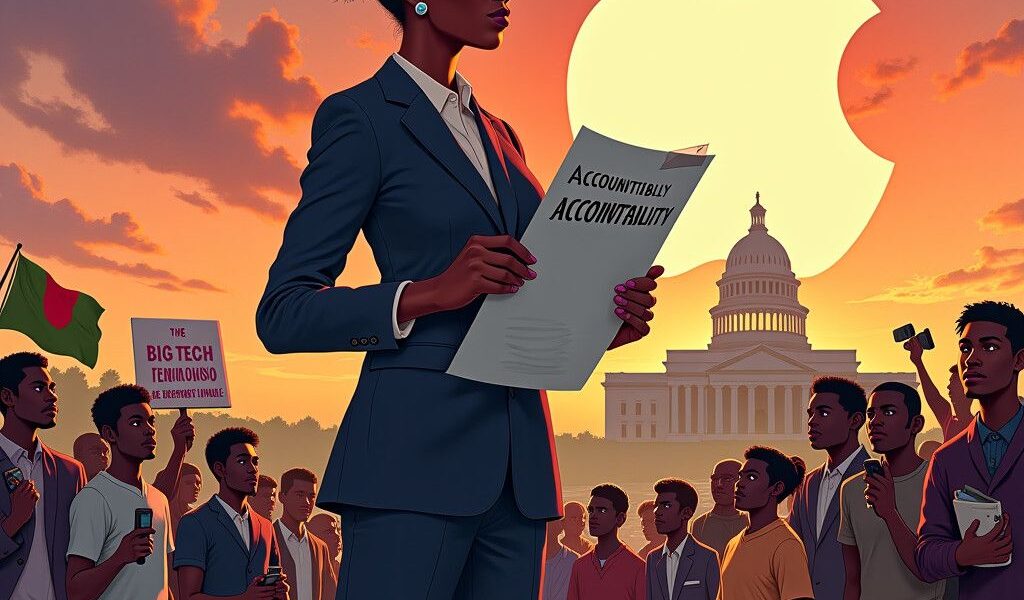Congo Lawyers Push for Accountability from Apple
In a significant move towards corporate accountability, lawyers representing the Democratic Republic of the Congo (DRC) are taking Apple to task over its supply chain practices. This legal effort comes in the wake of accusations against the tech giant for its alleged complicity in the extraction of conflict minerals, which has long plagued the DRC. The ongoing struggle for ethical sourcing in the tech industry highlights an urgent need for transparency and accountability from global corporations.
The DRC is rich in natural resources, notably cobalt and tantalum, essential components in the manufacturing of electronics, including smartphones and laptops. However, the mining of these minerals has often been linked to severe human rights violations, including child labor, violence, and environmental degradation. Despite Apple’s commitments to responsible sourcing, there remains a gap between corporate promises and actual practices.
A legal complaint filed by Congolese lawyers argues that Apple has failed to ensure its supply chain is free from conflict minerals, thereby contributing to the ongoing instability and human rights abuses in the region. The lawyers are demanding that Apple verify the claims it makes about its sourcing practices. This includes providing full transparency regarding the origins of the minerals used in its products and the measures the company has implemented to prevent human rights abuses.
The issue is further complicated by the fact that many electronics companies, including Apple, rely on third-party suppliers who are difficult to monitor. Experts suggest that without strict oversight and regular audits, it is challenging for these corporations to maintain ethical standards in their supply chains. For instance, the 2019 Amnesty International report revealed that nearly 20% of the world’s cobalt is sourced from artisanal mines in the DRC, where labor practices are notoriously poor.
One example of corporate commitment to change can be seen in Apple’s own initiatives. The company has claimed to be working towards sourcing more responsibly and has partnered with NGOs to improve working conditions in mining communities. However, critics argue that these measures are insufficient and often lack the rigorous enforcement needed to affect real change.
The lawyers representing the DRC are calling for more than just accountability; they are emphasizing the need for systemic change within Apple and the technology sector as a whole. This includes adopting an industry-wide standard for traceability in supply chains that goes beyond self-regulation.
In response to legal actions like the one initiated by the Congolese lawyers, industry observers suggest that companies could enhance their corporate social responsibility (CSR) strategies. Firms that proactively address these concerns can build stronger relationships with consumers who increasingly prioritize ethics and sustainability. The 2020 Consumer Trends Report from IBM highlighted that nearly 57% of consumers are willing to change their purchasing preferences to help reduce negative environmental impact.
As pressure mounts on corporations like Apple, it becomes clear that accountability is no longer optional. Companies are urged to examine not only the statements they make regarding ethical sourcing but also to take meaningful steps towards ensuring that their supply chains do not contribute to human rights abuses.
Emerging technologies such as blockchain could provide potential solutions to the issues surrounding traceability. By implementing blockchain, companies can create transparent supply chains that allow consumers to track the origins of materials used in the manufacturing process. This could be a significant step forward in restoring trust in large corporations and preventing complicity in human rights violations.
In conclusion, the legal actions taken by lawyers in the DRC present an important moment in the ongoing battle for ethical sourcing in the tech industry. As the call for corporate accountability grows louder, it is crucial that companies like Apple take decisive actions to verify their supply chains and uphold human rights. Failure to do so could not only tarnish their reputation but also increase the risk of further legal challenges in the future.








